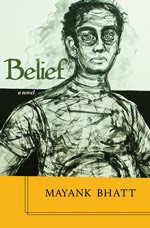 |
AgataTuszyńska |
Sunday, June 19, 2016
Agata Tuszyńska
Last
month I went to hear Antanas Sileika talk to AgataTuszyńska about her newly
released memoir Family History of Fear. Tuszyńska is a
Polish journalist, biographer, and poet.
She was in
Toronto at the Harbourfront Centre’s International Festival of
Authors (IFOA) to promote the English translation of the book
that was originally published in 2005. The memoir is about her peculiar and
painful growing up when her Jewish side was deliberately and rather forcefully
hidden.
Tuszyńska
was born to a Jewish mother Halina Przedborska, and an Orthodox Christian
father, Bogdan Tuszyński. She has devoted considerable time and effort to record
the rapidly vanishing Jewish presence from Poland’s mainstream. Her works
include a biography of Issac Bashevis Singer (Singer:
Landscapes of Memory), a controversial biography of Vera Gran (The Accused), for
which the subject dragged the author to court,
Sileika,
author of three novels, including the highly acclaimed Underground,
is a polished interviewer. His seemingly innocuous questions to Tuszyńska
invariably resulted in soul searing responses.
“I wasn’t
allowed to openly say that I was partly Jewish,” she said. To resolve this
contradictory identity, she decided to write a memoir. Some of her
friends were aware of her identity, as was her late husband, too, and was a
vociferous supporter of Tuszyńska attempt to record her life. “To come out of
the closet, so to speak, about my Jewish identity was important not only to me,
but also to so many others like me,” she said.
She had to
face prejudice, even from her father, even as her mother would quietly assure
her that Tuszyńska was indeed a Jew. Her parents were famous, her father was a
sport journalist, and a historian with an illustrious career, and her mother
was also a journalist.
They
separated when she Tuszyńska was six. She recalled, at that young age, she
wasn’t willing to accept this separation, and would leave her dad’s shoes
outside the door to show the other children that “he was still with me.”
Sileika
asked her why she wasn’t as evocative describing her Polish heritage as her
Jewish heritage, and that post-war Poland wasn’t a terribly happy place, but
that period in the memoir is of happy times. Tuszyńska said both her parents
were socialists, who were determined, like most of that generation, to build a
new Poland. Of course, their aspirations were throttled by the overbearing
presence and overarching control by the Soviet Union.
Tuszyńska’s
mother never spoke about her mother (Tuszyńska’s grandmother) for many years,
but then opened up to her daughter to tell her about her grandmother’s tragic
death in October 1944 (Poland was liberated in January 1945).
Tuszyńska
explained that in the memoir she created her grandmother’s character from her
purse, which was the only thing that Tuszyńska’s mother had saved. What the
purse contained was both shocking and revelatory. Everything thing in the purse
was false: the documents, an envelope with a stamp that had Hitler’s face, and
a photo of Jesus Christ. She was ready to escape the ghetto, but the Nazis had
other plans. Tuszyńska said it is ironic that the only proof of her
grandmother’s existence is the false papers. Her husband, Tuszyńska’s
grandfather, survived the war, but never spoke about the tragedy.
Marriages
and unions where religion and race come together are fairly commonplace these
days, especially in Canada, where immigrants from across the world live
together to create a unique Canadian identity that valiantly attempts to rise
above the narrow confines of faith and colour. And yet, each of this union is
unique and has its own moments of little glories and major crises. Each is
worth a book, at least.
Subscribe to:
Post Comments (Atom)




No comments:
Post a Comment